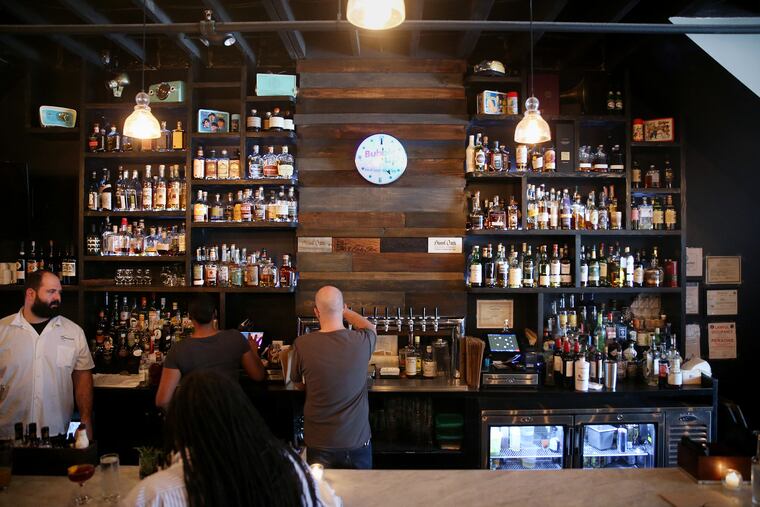Pennsylvania’s wet towns get a little extra cash for hosting liquor licensees
The Pennsylvania Liquor Control Board returned more than $2.4 million in liquor license fees to 1,379 municipalities this summer, including $300,600 to Philadelphia.

West Whiteland Township police recently purchased four body cameras with money from a perhaps surprising source: the Pennsylvania Liquor Control Board.
The Chester County community is one of the towns throughout the state that get anywhere from a couple hundred to hundreds of thousands of dollars for hosting businesses licensed to sell liquor. It’s not a windfall, but it’s money they can use however they want.
Twice a year, municipalities receive a portion of the liquor license fees the state collects. The state paid more than $2.4 million to 1,379 municipalities this summer, the Liquor Control Board announced recently. The board has paid more than $22.4 million in licensing fees to local municipalities over the last five fiscal years.
Why does the Liquor Control Board share fees with local governments?
It’s written into the state’s Liquor Code. The state must give the fees to municipalities each February and August. The local governments have been receiving the fees since 1934, the year after the end of Prohibition. The provision was part of a liquor control bill backed by then-Gov. Gifford Pinchot, who was on a mission to keep Pennsylvanians from drinking.
Sen. Patrick Stefano (R., Fayette), chair of the Law and Justice Committee, which oversees liquor regulations, said giving money back to local governments just makes sense.
“There’s an impact [for] the sale and control of alcohol, of course,” Stefano said. "That impact is felt at the local level, the community level.”
At a bar in Stefano’s hometown of Connellsville, Fayette County, police officers dealt with drug activity, late-night bar fights, and underage drinking. There was a shooting in December.
“The local police force was having to put in extra resources,” Stefano said. "In a town with a small tax base, that can be very financially taxing.”
The bar is now closed.
How much money comes to each municipality?
The amount a town gets depends on its population and the number and types of liquor licenses within its borders. License fees for a restaurant are higher than for a club, for example.
The board has been returning more than $5 million a year to municipalities for more than six decades.
In the Philadelphia region, 10 municipalities received at least $5,000 this summer.
Philadelphia: $300,600
Lower Merion Township, Montgomery County: $15,750
Upper Merion Township, Montgomery County: $14,900
Abington Township, Montgomery County: $9,850
Montgomery Township, Montgomery County: $6,750
Horsham Township, Montgomery County: $6,350
Plymouth Township, Montgomery County: $5,400
West Chester Borough, Chester County: $5,300
Whitpain Township, Montgomery County: $5,100
Norristown Borough, Montgomery County: $5,000
What do municipalities do with the money?
The state’s liquor code says the board must remit the fees, but it doesn’t say how municipalities must spend the money. So it’s up to local officials to decide.
The funds are a drop in the bucket for the governments. Many, like Philadelphia, just put the money into their general funds to put toward paying for services.
West Whiteland usually gets $5,000 to $6,000 each year — a small amount given its $12 million operating budget “but every bit helps,” said Township Manager Mimi Gleason. Although the township doesn’t earmark the funds for anything in particular, they usually go toward police department equipment such as body cameras, she said.
“It’s our police that are mostly impacted by the number of establishments that sell alcohol here,” Gleason said.
Two dozen establishments in the township, which includes Exton, have some kind of liquor license, including restaurant, hotel, brewery, and club. Gleason said the four new body cameras are extras for the department, which already had one for each of its 22 officers.